Chicken-Friendly Plants for Your Garden
Do you have some chickens clucking around your backyard? Well, it's time to turn your garden into a buffet of goodness for them! Here's a guide to chicken-friendly plants that not only make your garden look pretty but also keep your chickens healthy and happy.
Herbs
Herbs are plants that are valued for their aromatic, flavorful, or medicinal properties. These plants are often used in cooking to enhance the taste of food, and they can also have various health benefits. Common culinary herbs include basil, parsley, oregano, thyme, rosemary, and mint. Besides their culinary uses, herbs are sometimes utilized for their medicinal properties in traditional and alternative medicine. Herbs are typically the leaves of plants, although some may include other parts such as flowers, seeds, or stems. They add a burst of flavor and fragrance to dishes and are a versatile addition to gardens, kitchens, and even for holistic well-being.
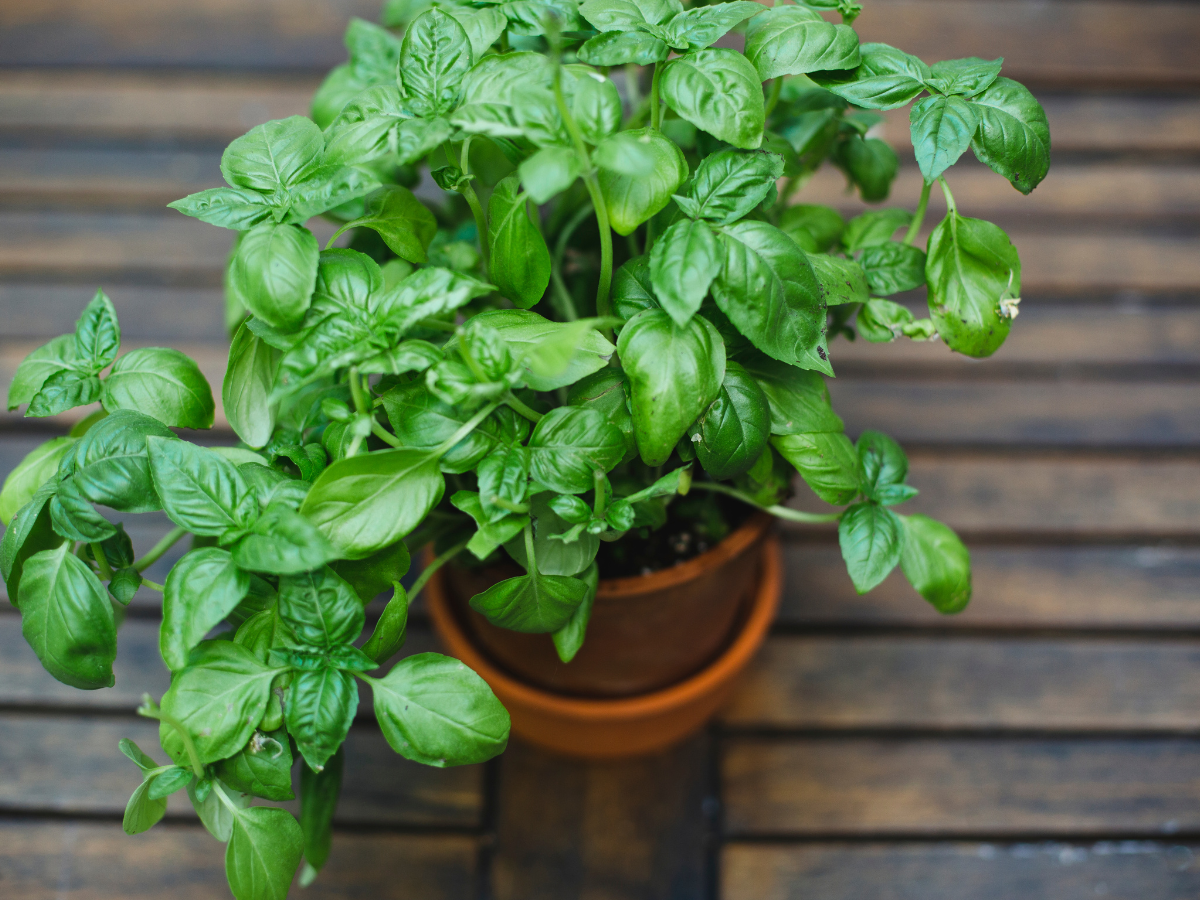
Basil: Including crushed basil in your chicken feed enhances the health of their mucus membranes and respiratory system, ensuring your hens stay cheerful, and their egg yolks maintain a vibrant orange color.
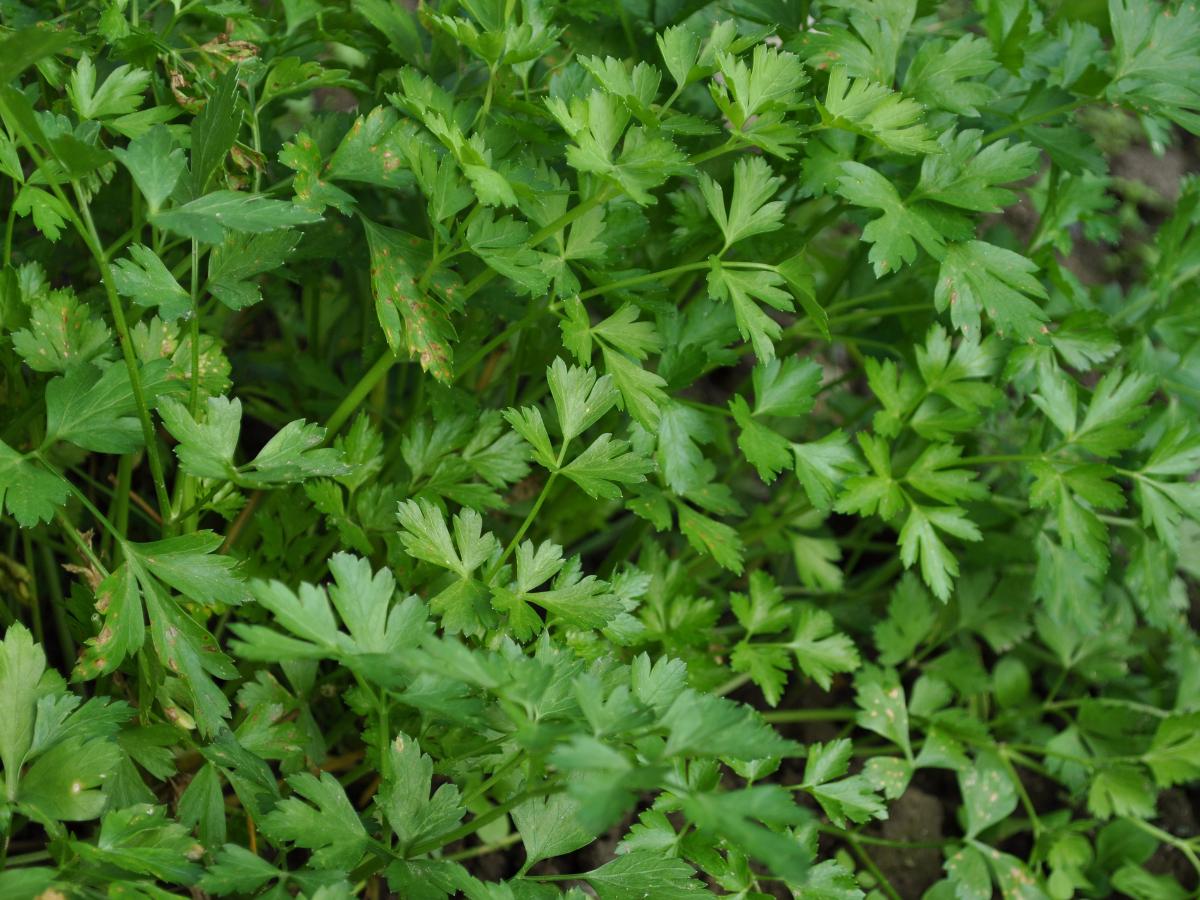 Parsley: This herb is rich in nutrients, providing a vitamin boost for your chickens. Additionally, parsley supports blood vessel development. You have the option to offer it fresh for them to consume freely or add it in a dried form to their feed.
Parsley: This herb is rich in nutrients, providing a vitamin boost for your chickens. Additionally, parsley supports blood vessel development. You have the option to offer it fresh for them to consume freely or add it in a dried form to their feed.
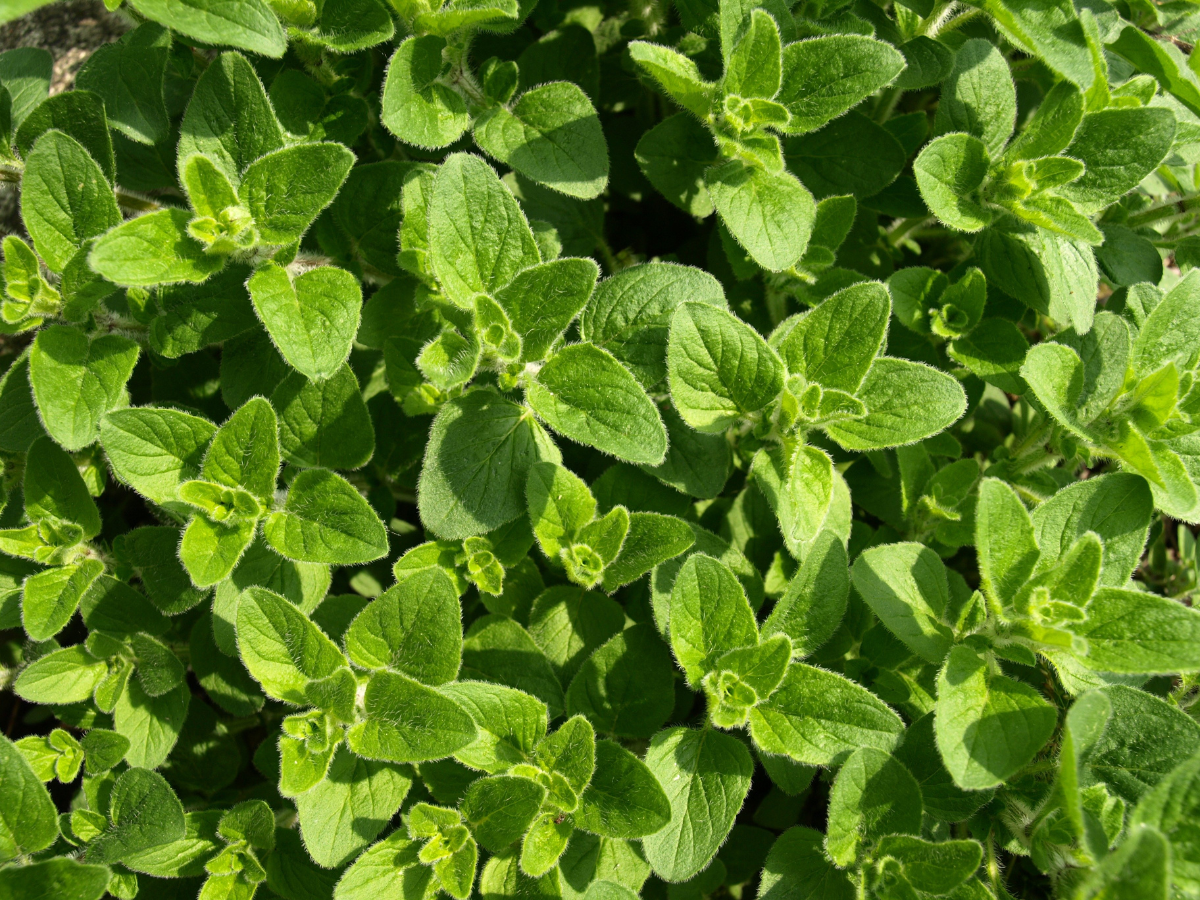
Oregano: This herb enhances the immune system of your flock, providing protection against prevalent poultry ailments such as avian flu and salmonella. Oregano can be offered to your chickens in its fresh form or blended into their daily feed when dried.
Leafy Greens
Leafy greens refer to a diverse group of green, leafy vegetables that are rich in nutrients and are often consumed for their health benefits. These vegetables are characterized by their tender, edible leaves and are typically packed with vitamins, minerals, and fiber. Leafy greens come in various shapes, sizes, and flavors, offering a wide range of options for culinary use.

Kale: Kale serves as a flavorful enhancement to a chicken's diet and boasts exceptional nutritional value, containing some of the essential nutrients chickens require. Particularly, the nutrients in kale are of high quality, easily assimilated by chickens, thereby promoting their health and overall development.
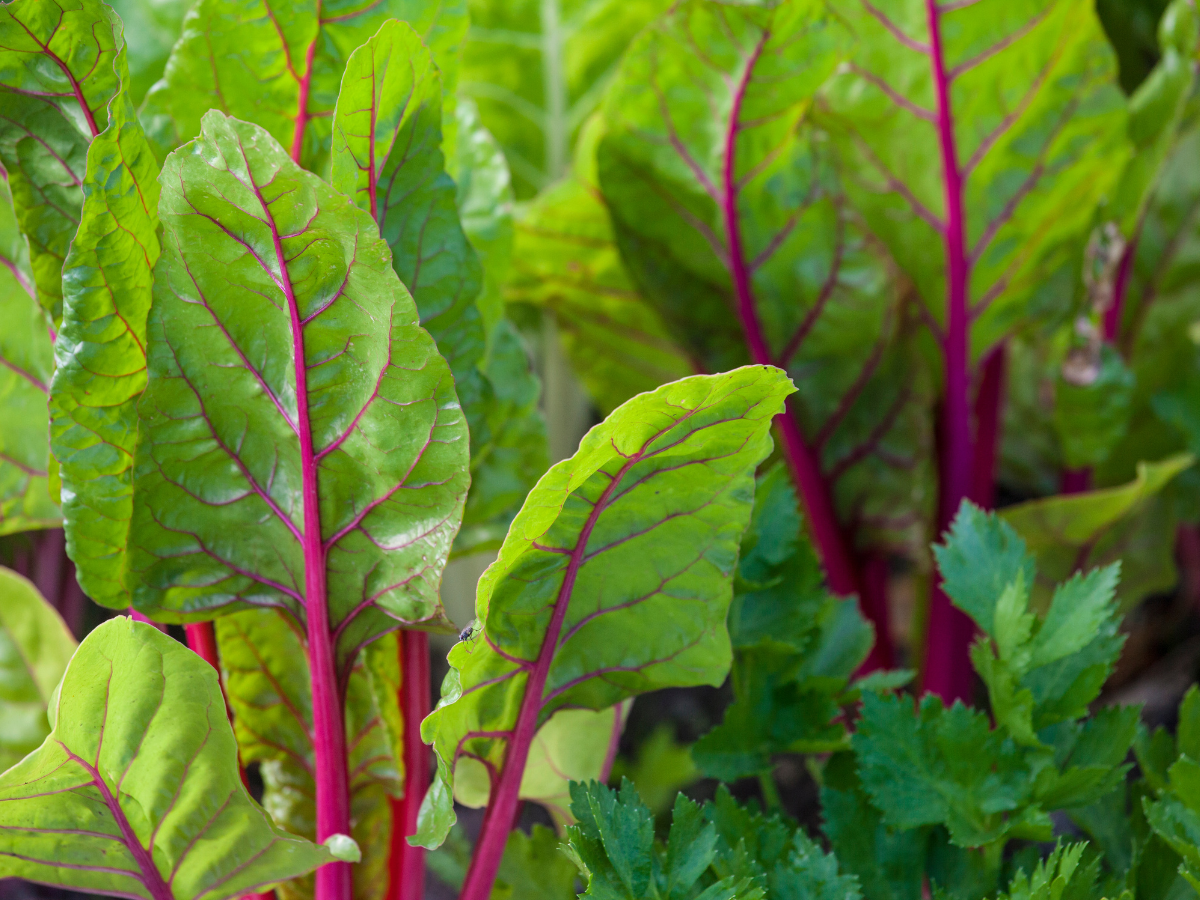
Swiss Chard: Swiss chard is a highly nutritious food that provides ample amounts of vitamin C, known for its antioxidant properties, and vitamin K, crucial for blood clotting. Given its nutrient density, Swiss chard is a wholesome option for various species, including chickens.

Lettuce: Lettuce offers chickens a hydrating and vitamin-rich option, particularly beneficial during warm weather to prevent dehydration. Packed with essential nutrients like vitamin A, vitamin K, and folate, lettuce supports various aspects of chicken health, including vision and blood clotting. Its low-calorie nature makes it a suitable treat for chickens on controlled diets, and the addition of lettuce provides dietary variety, encouraging a more balanced intake. Beyond its nutritional benefits, allowing chickens to forage and peck at lettuce contributes to mental stimulation and behavioral enrichment, promoting overall well-being. However, it's important to ensure the lettuce is free from harmful substances and given in moderation to maintain nutritional balance.
Berries
Berries are small, juicy, and typically colorful fruits that are often characterized by their sweet or tart flavor. These fruits are known for their vibrant hues, ranging from red and blue to purple and black. Berries are not only delicious but also packed with various nutrients and antioxidants, making them a healthy addition to your chicken's diet.
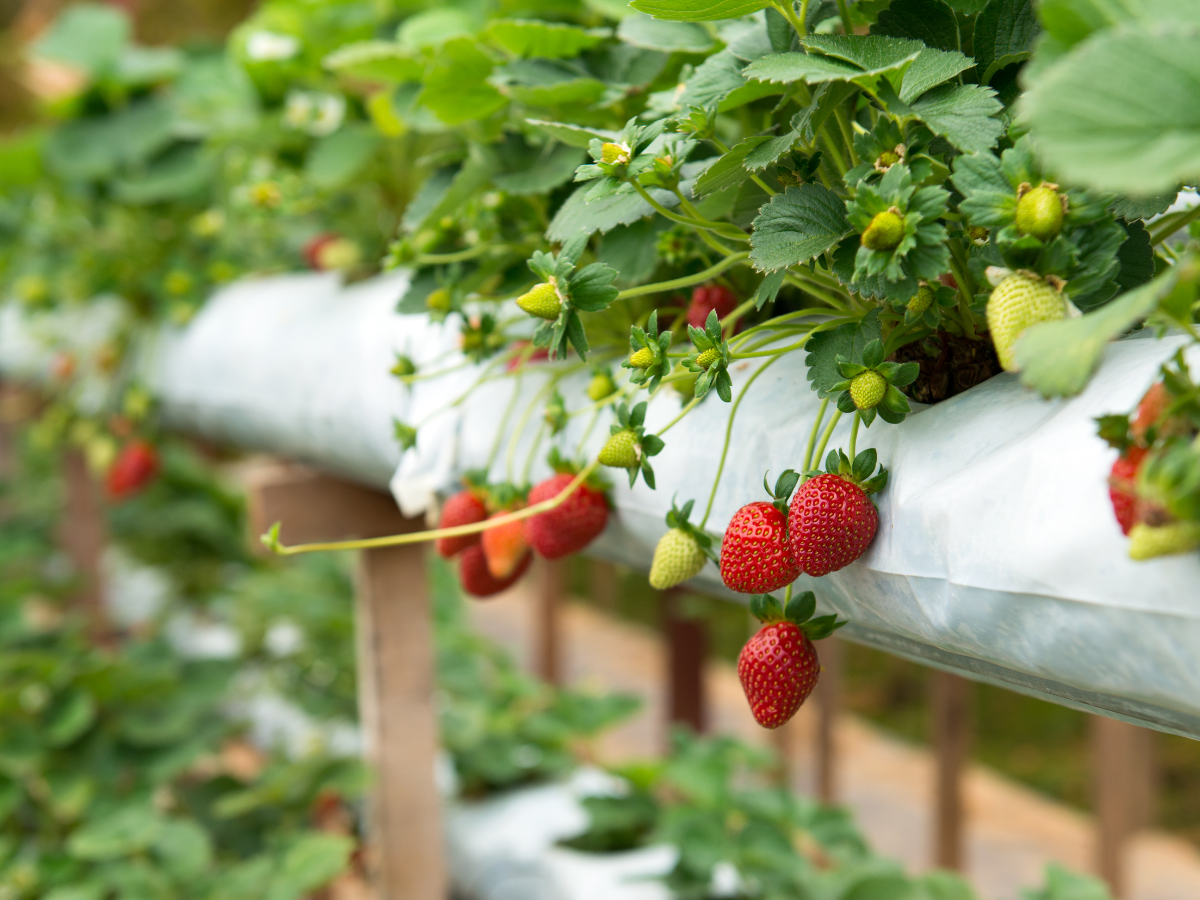
Strawberries: Strawberries are rich in vitamin C, B9, potassium, and antioxidants, contributing to the enhancement of your flock's immune system and overall health within a nutritious and well-rounded diet. Incorporating strawberries as a dietary component can provide vital nutrients that support the vitality and resilience of your chickens. As a natural source of essential vitamins and antioxidants, strawberries serve as a flavorful and beneficial addition to your flock's diet, promoting their overall well-being and immune function.
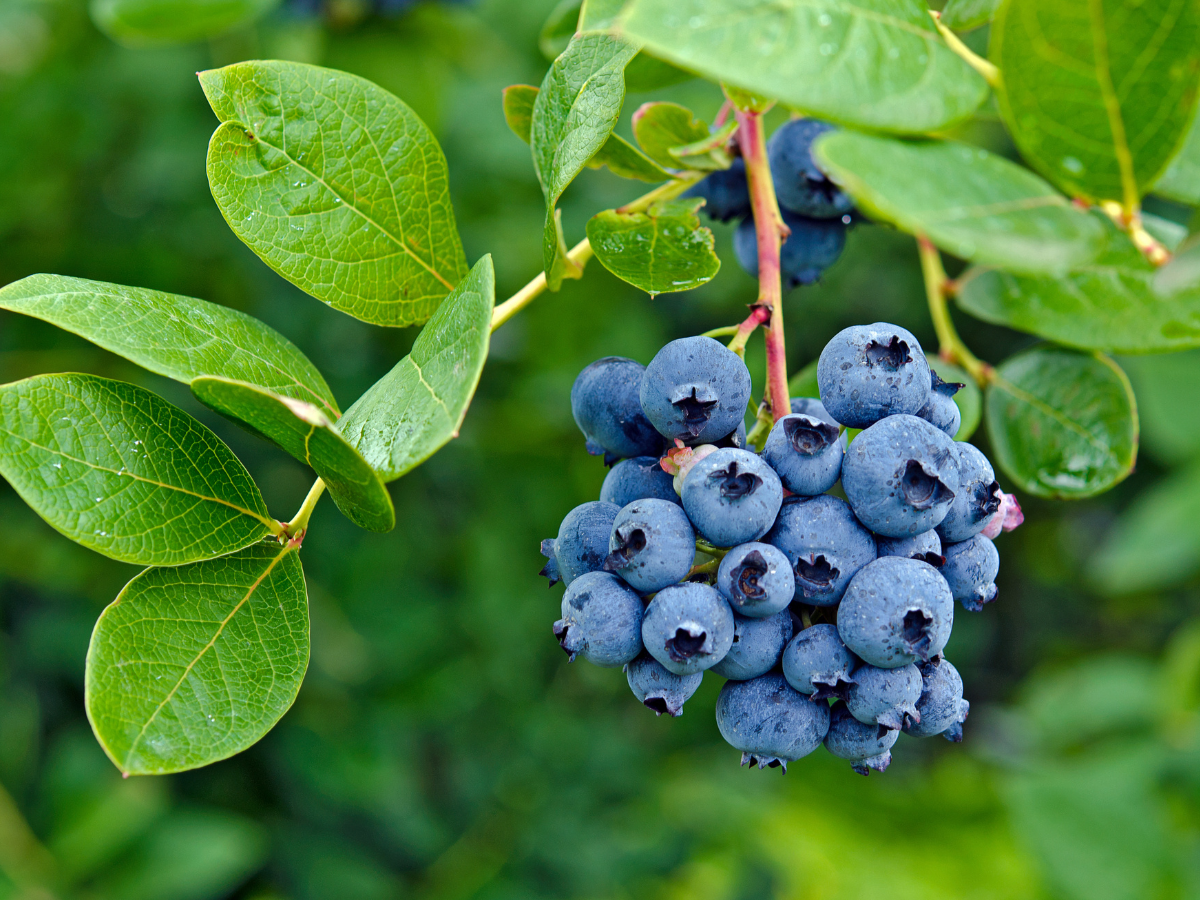
Blueberries: Blueberries also have high levels of Vitamin C and Vitamin K, along with manganese and iron. Vitamin C helps to boost the immune system. Vitamin K promotes blood clotting and healthy bones, while also improving egg production.
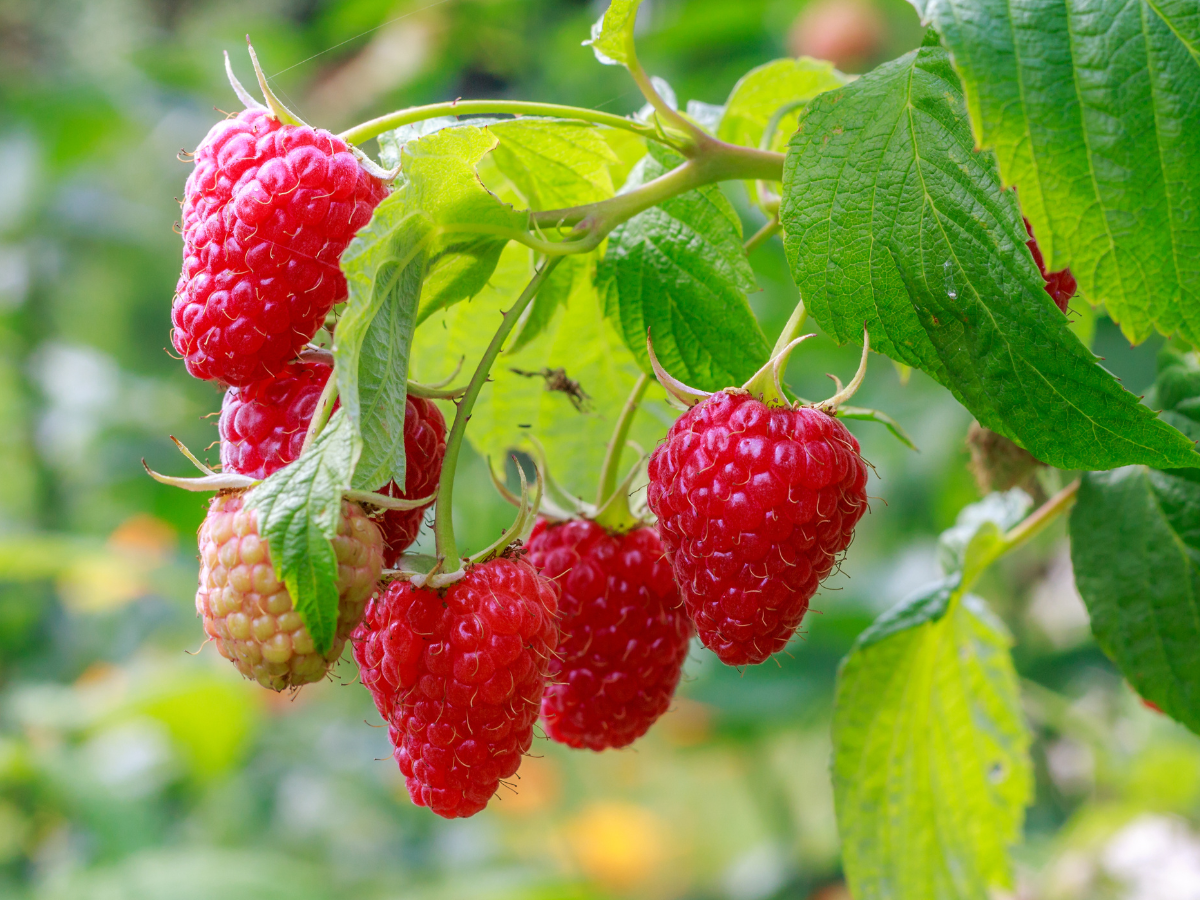
Raspberries: Raspberries bring multiple benefits to chickens, serving as a nutritious treat with essential vitamins, antioxidants, and dietary fiber. Rich in vitamins C and K, raspberries support overall health and contribute to a robust immune system in chickens. The fiber content aids digestion, making them a wholesome addition to a chicken's diet. Beyond nutrition, the delightful taste of raspberries provides chickens with a natural and enjoyable treat, promoting both physical well-being and mental enrichment through foraging behavior.
Legumes
Legumes are a family of plants that produce seeds in pods. These seeds, often referred to as pulses, are commonly consumed as food. Legumes are valued for their high protein and fiber content, making them a nutritious addition to various diets.
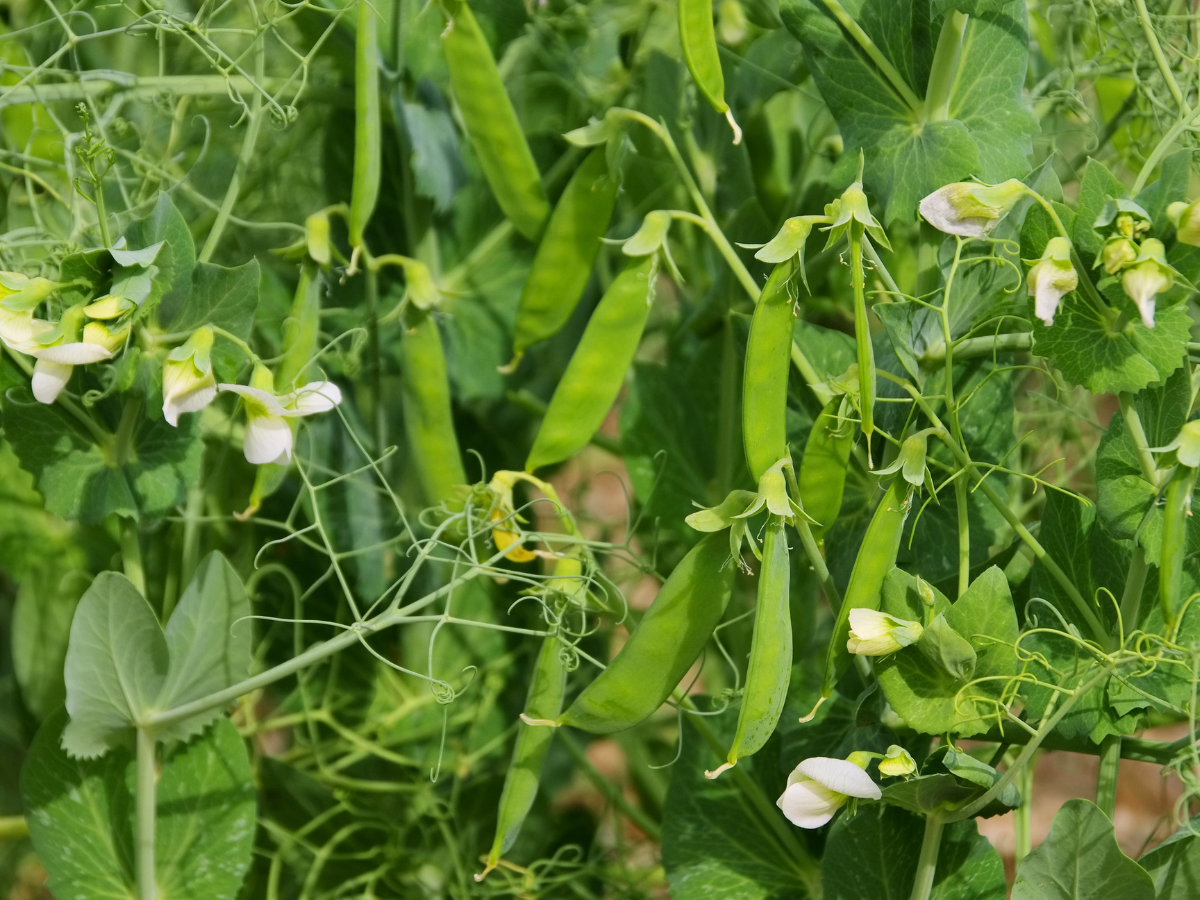 Peas: Peas offer valuable nutritional benefits to chickens, being a rich source of protein, vitamins, and minerals. Packed with essential nutrients like vitamin A, vitamin K, and folate, peas contribute to overall health, supporting immune function and promoting proper growth. The protein content in peas is particularly beneficial for muscle development and maintaining a balanced diet for chickens. Additionally, the natural sweetness of peas makes them a flavorful and enticing treat, encouraging chickens to consume a diverse range of foods. Including peas in their diet not only enhances their nutritional intake but also provides behavioral enrichment through pecking and foraging, contributing to the overall well-being of the flock.
Peas: Peas offer valuable nutritional benefits to chickens, being a rich source of protein, vitamins, and minerals. Packed with essential nutrients like vitamin A, vitamin K, and folate, peas contribute to overall health, supporting immune function and promoting proper growth. The protein content in peas is particularly beneficial for muscle development and maintaining a balanced diet for chickens. Additionally, the natural sweetness of peas makes them a flavorful and enticing treat, encouraging chickens to consume a diverse range of foods. Including peas in their diet not only enhances their nutritional intake but also provides behavioral enrichment through pecking and foraging, contributing to the overall well-being of the flock.
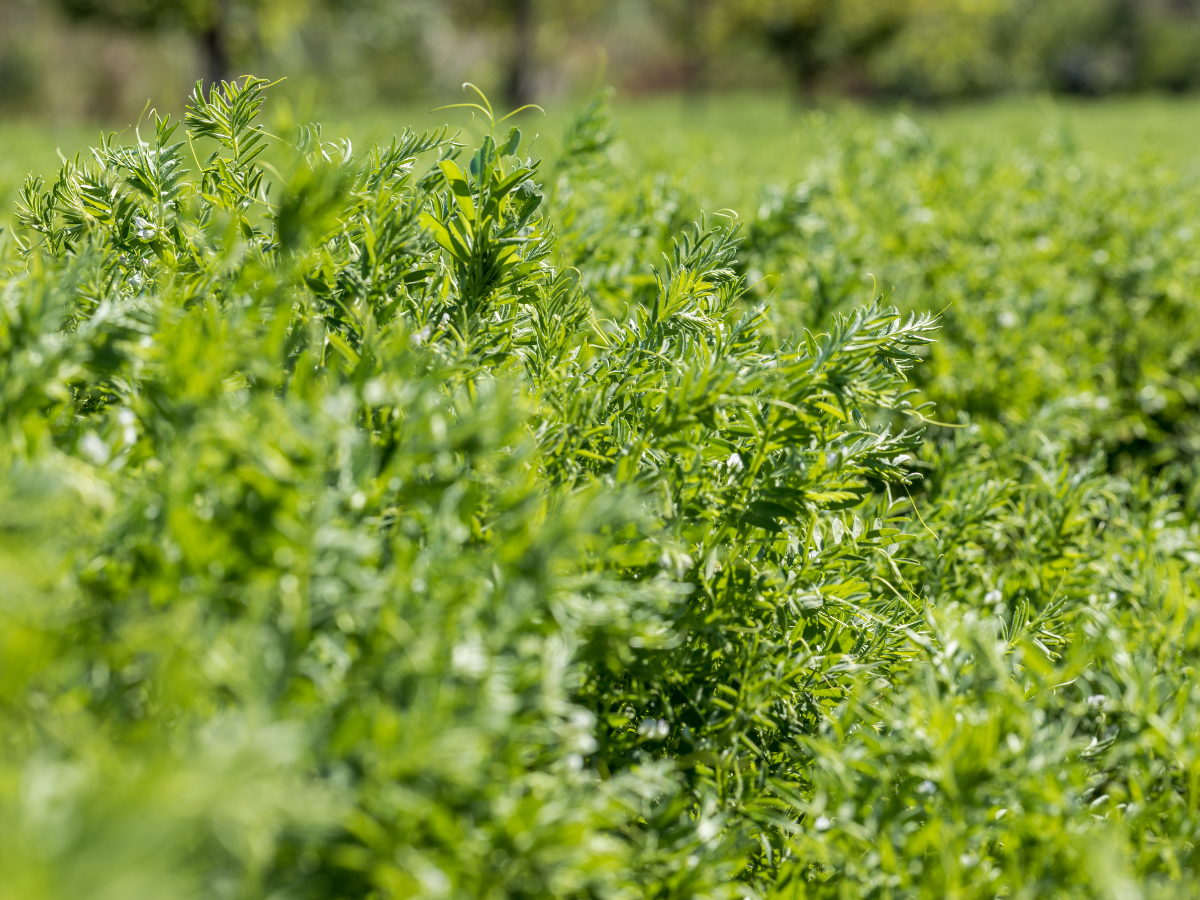 Lentils: Lentils serve as a nutritious and protein-rich addition to a chicken's diet, offering essential amino acids vital for muscle development and overall growth. Packed with beneficial nutrients such as iron, zinc, and B-vitamins, lentils contribute to the overall health and vitality of chickens. The high fiber content aids in digestion, promoting a healthy digestive system. Lentils also provide a sustainable and plant-based protein source, making them valuable for chickens, especially in vegetarian or vegan diets. The versatility of lentils allows them to be incorporated into various dishes or mixed into the feed, offering both nutritional benefits and flavor variety to support the well-being of the flock.
Lentils: Lentils serve as a nutritious and protein-rich addition to a chicken's diet, offering essential amino acids vital for muscle development and overall growth. Packed with beneficial nutrients such as iron, zinc, and B-vitamins, lentils contribute to the overall health and vitality of chickens. The high fiber content aids in digestion, promoting a healthy digestive system. Lentils also provide a sustainable and plant-based protein source, making them valuable for chickens, especially in vegetarian or vegan diets. The versatility of lentils allows them to be incorporated into various dishes or mixed into the feed, offering both nutritional benefits and flavor variety to support the well-being of the flock.
Flowers
Flowers are the reproductive structures of flowering plants (angiosperms). They are typically the most visually appealing part of the plant, known for their vibrant colors, unique shapes, and pleasing fragrances. Flowers play a crucial role in the plant's life cycle by producing seeds for reproduction.
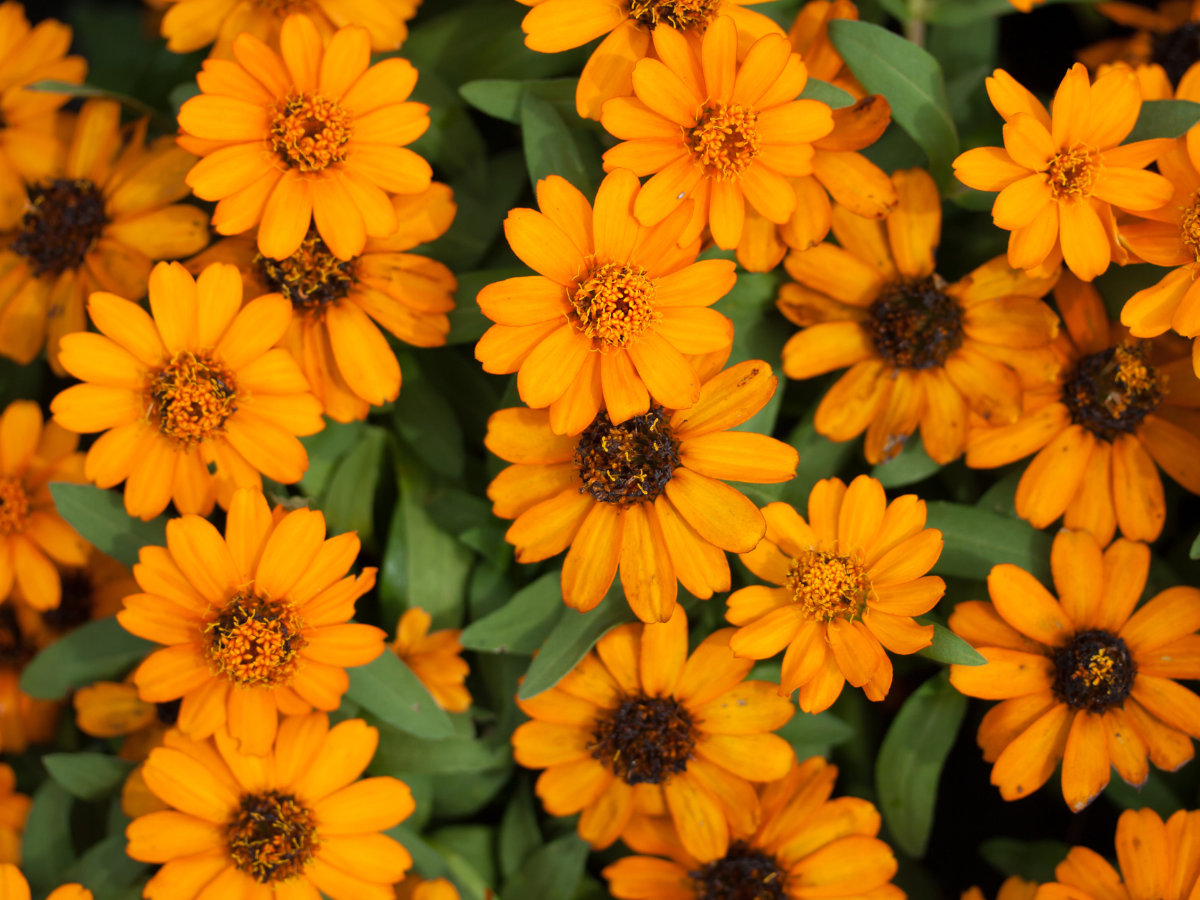 Calendula: Grow Calendula to add to chicken feed. The bright yellow petals are tasty to the birds and the vitamins and color enhance the yolk color, naturally. Calendula helps with inflammation in the mouth or thrust or yeast overgrowth.
Calendula: Grow Calendula to add to chicken feed. The bright yellow petals are tasty to the birds and the vitamins and color enhance the yolk color, naturally. Calendula helps with inflammation in the mouth or thrust or yeast overgrowth.
 Nasturtiums: All components of the nasturtium plant provide ample amounts of vitamins C and A. The vibrant flowers contain a significant dose of Vitamin C, crucial for fortifying the chickens' immune systems. Additionally, Vitamin A, found in abundance in nasturtiums, plays a vital role in supporting healthy growth and bone development in chickens.
Nasturtiums: All components of the nasturtium plant provide ample amounts of vitamins C and A. The vibrant flowers contain a significant dose of Vitamin C, crucial for fortifying the chickens' immune systems. Additionally, Vitamin A, found in abundance in nasturtiums, plays a vital role in supporting healthy growth and bone development in chickens.

Sunflowers: Sunflowers offer chickens a nutritious boost, with their seeds being rich in protein, healthy fats, fiber, and essential vitamins and minerals like vitamin E. These seeds not only provide a concentrated source of energy but also contribute to feather health, enhancing the chickens' plumage. Additionally, sunflower seeds serve as a natural and enjoyable treat, promoting foraging behavior and mental stimulation. When given in moderation, sunflowers can be a valuable and tasty addition to a well-balanced chicken diet, supporting their overall well-being.
Gourds
Gourds refer to a group of plants belonging to the Cucurbitaceae family, which includes various types of fruits with hard shells. These fruits are typically grown for their decorative, utilitarian, or culinary purposes. Gourds can come in different shapes, sizes, and colors, and their outer shells are often hard and durable.
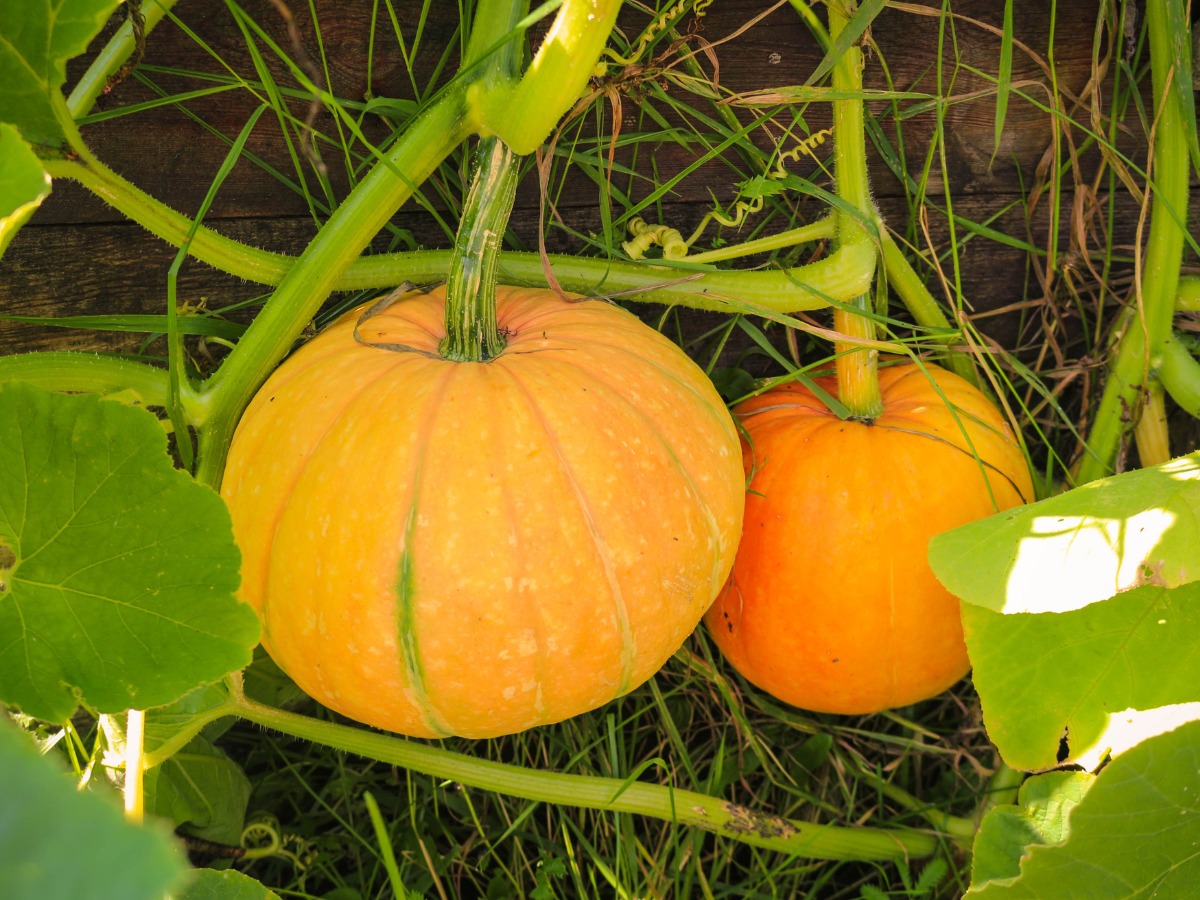
Pumpkins: Pumpkins offer chickens a nutritious and versatile food source, rich in vitamins, minerals, and fiber. The vibrant orange flesh is particularly high in beta-carotene, promoting eye health and vibrant plumage. Additionally, pumpkins contain vitamins A and C, contributing to overall immune function and well-being in chickens. The seeds, when properly prepared, serve as a protein-rich snack and a natural source of essential fatty acids. Beyond their nutritional benefits, pumpkins provide entertainment for chickens as hanging treats or puzzle feeders, encouraging natural foraging behaviors. Overall, incorporating pumpkins into a chicken's diet supports both their physical health and mental enrichment, making them a valuable and enjoyable addition to the flock's nutrition.
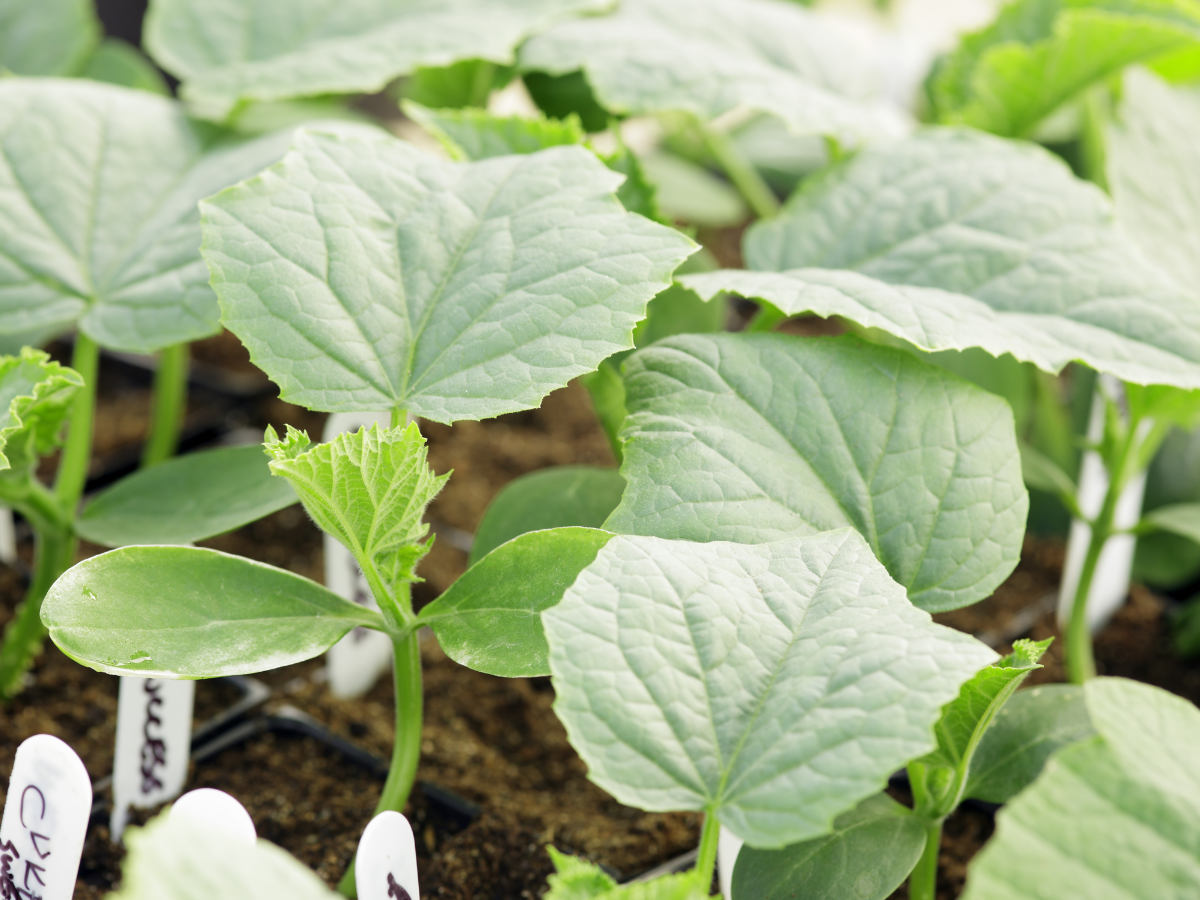
Squash: Squash is a beneficial addition to a chicken's diet, offering a range of essential nutrients for overall health. Packed with vitamins A and C, squash supports immune function and promotes optimal feather and skin health in chickens. The high fiber content aids in digestion, contributing to a healthy digestive system. Additionally, squash provides crucial minerals such as potassium and manganese. Its versatility allows for various preparation methods, from feeding it fresh to incorporating it into cooked meals or mixing it into feed. Squash serves as a nutritious and safe option for chickens, adding variety to their diet and ensuring they receive the necessary vitamins and minerals for well-rounded nutrition and vitality.
By planting these chicken-friendly goodies in your garden, you're not just creating a beautiful space but also a haven of health for your clucking companions. Happy gardening and happy clucking!
